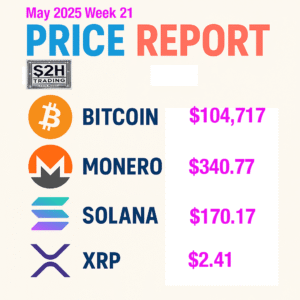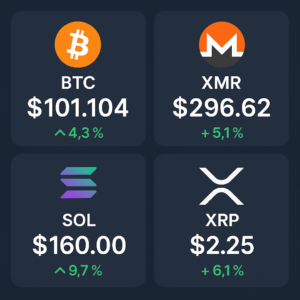by Scott Emick
2/14/2025
Valentine’s Day, the global celebration of love, flowers, and chocolate, has a history as complex and mysterious as the blockchain itself. Much like the ever-evolving world of cryptocurrency, Valentine’s Day has transformed over centuries, adapting to new cultures, technologies, and economies. Let’s take a journey through the origins of Valentine’s Day and explore how the lessons of love, trust, and risk-taking in romance mirror the dynamic world of crypto.
A Brief History of Valentine’s Day: Love Tokens Before Tokens Were Cool
The roots of Valentine’s Day stretch back to ancient Rome, where the mid-February festival of Lupercalia was celebrated with feasts, fertility rituals, and matchmaking lotteries. Think of it as the original decentralized dating app, with Cupid as its first influencer.
However, the holiday we know today owes much to Saint Valentine, a Roman priest who defied Emperor Claudius II’s ban on marriages for young soldiers. Valentine, like a true HODLer in the face of market FUD, secretly performed weddings, believing in the long-term value of love. For his defiance, he was executed on February 14th, forever linking his name to romantic devotion.
Fast forward to the Middle Ages, and Valentine’s Day began to gain popularity, with lovers exchanging handwritten notes—the earliest forms of love letters, or as we might call them today, “peer-to-peer messages.” By the 19th century, mass-produced Valentine’s cards flooded the market, laying the groundwork for the commercialized holiday we celebrate today.
Love and Blockchain: A Match Made in Decentralized Heaven
Much like love, cryptocurrency is built on trust, risk, and sometimes, a little bit of magic. Consider this: when you fall in love, you’re essentially making an investment without a guarantee of returns. Similarly, when you invest in Bitcoin or Ethereum, you’re placing trust in a decentralized network of nodes, hoping your belief pays off.
Saint Valentine championed love despite the risks, much like Satoshi Nakamoto championed digital currency in a world dominated by centralized banks. Both were visionaries who challenged the status quo, and both inspired global movements.
In the world of crypto, smart contracts ensure that transactions are executed exactly as agreed upon, eliminating the need for intermediaries. Wouldn’t it be nice if relationships came with smart contracts?
Imagine a blockchain-based dating app where promises are immutable. No more ghosting, no more forgotten anniversaries—just a ledger of every promise made and kept. Cupid might need to upgrade his arrows to NFTs (Non-Fungible Tokens) to keep up.
Tokens of Affection: From Roses to Digital Assets
Valentine’s Day is synonymous with gifts—flowers, chocolates, jewelry. But in the digital age, why not gift a little Ethereum or a custom NFT? After all, love is priceless, but gas fees aren’t.
Just as Valentine’s Day has evolved from handwritten notes to digital greetings, the way we view and handle money has shifted from physical cash to digital wallets. The essence, however, remains the same: trust, commitment, and a little bit of hope.
So this Valentine’s Day, whether you’re buying your loved one a bouquet of roses or a fraction of a Bitcoin, remember that both love and crypto are about taking chances, believing in the future, and holding on through the dips.
After all, the greatest investments often come with the greatest rewards.







